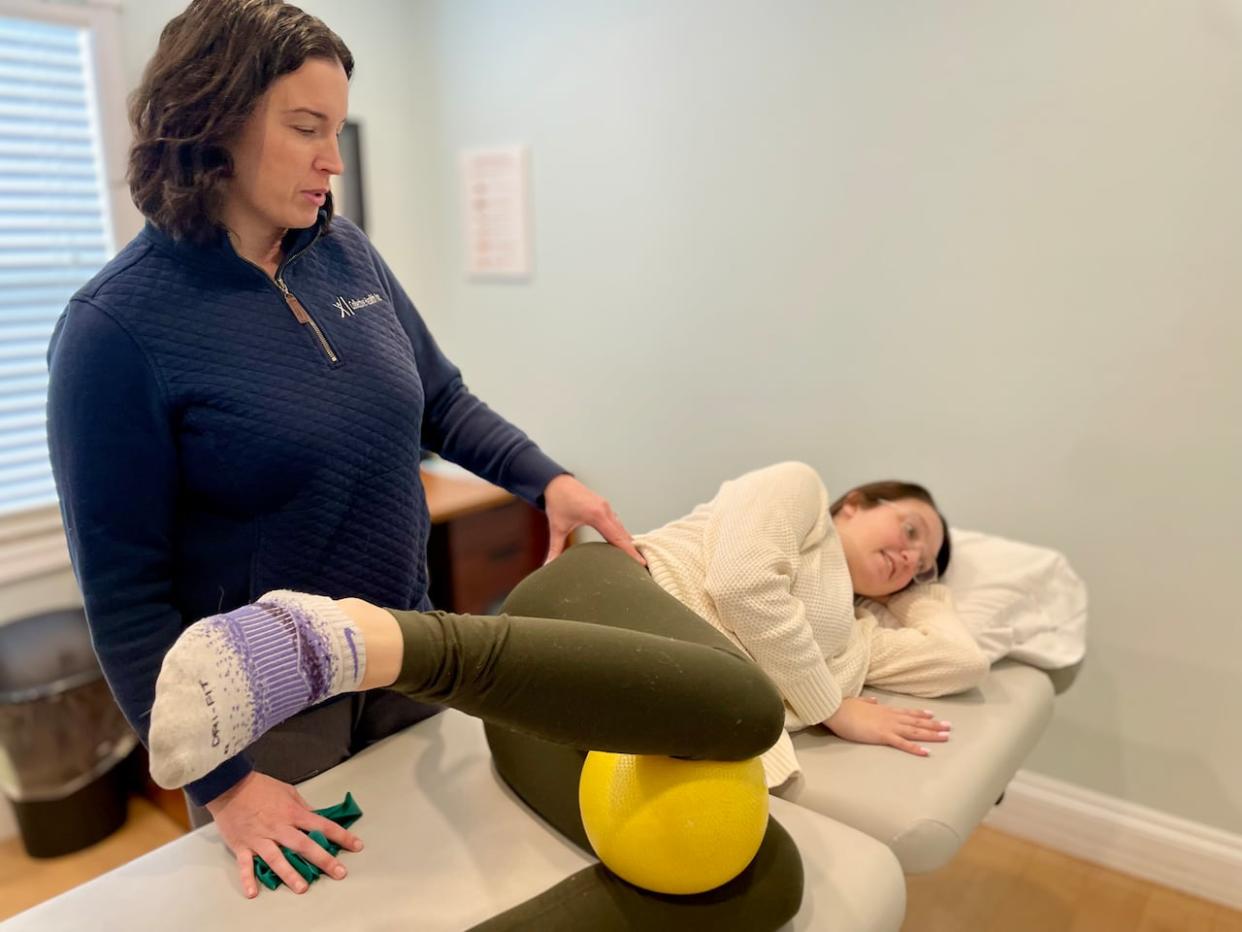P.E.I. facing shortage of physiotherapists as some shift to primary care clinics

Health P.E.I.'s efforts to recruit physiotherapists to work at new primary care clinics is creating challenges for other facilities that rely on them.
The association representing Island physiotherapists says there are too few of them working in the province to meet the growing demand.
"It's great that we've had the creation of all these new jobs. We advocated for them. We really do think that physio needs to be in primary care," said Sheila MacMurdo, president of the P.E.I. Physiotherapy Association.
"But unfortunately, we've had the creation of all these new jobs, but no new bodies to fill them. So if a physio fills an empty position, we're usually robbing from Peter to pay Paul… They're leaving behind a vacant position where they once worked."
MacMurdo says seven physiotherapists are now working at Health P.E.I.'s new patient medical homes — primary care clinics where doctors and nurses work collaboratively with other specialized staff, including physiotherapists, dietitians, and occupational therapists.

Sheila MacMurdo, president of the P.E.I. Physiotherapy Association, said having physiotherapists working in primary care is a 'great thing.' But with too few of them working in the province, it's leading to vacancies in other areas. (Steve Bruce/CBC)
The P.E.I. government's aim is to have 30 medical homes running by the end of this year.
MacMurdo said that puts other facilities already contending with physio shortages — like hospitals, long-term care homes, and private clinics — at risk of losing more staff.
Charlottetown's Queen Elizabeth Hospital currently has six vacant physio positions.
Nobody needs physio in one month, or two months, or six months down the road. They need physio now... the sooner you get your treatment, the better the prognosis. — Sheila MacMurdo
"Some of our hospital facilities have 12-month-plus waits to get into see a physio, and that's not acceptable," said MacMurdo.
"Nobody needs physio in one month, or two months, or six months down the road. They need physio now, and there's great evidence that the sooner you get your treatment, the better the prognosis."
'More pronounced' since pandemic
Physiotherapist Blythe Martin co-owns Collective Health, a private clinic in Summerside.
Martin said as P.E.I.'s population has grown and aged, she's seen the demand for physiotherapy increase. But it's proven to be tough to keep up.
"It's definitely been more pronounced in the last five years, and especially since the pandemic," she said. "If you talked to any clinic owner, they could use another physio.
"The public system has a lot of openings. The medical homes that have recently hired physiotherapists have found it hard to find people.
"For patients, it means increased wait times. And when you're in pain and you don't know what to do, or you've had surgery and need that guidance, waiting longer than you need to wait is not ideal."
'Short-term pain for long-term gain'
Colin Hood, a physical rehabilitation program lead with Health P.E.I., said given the shortage of physiotherapists, moving some into primary care has caused challenges in the system.
But he said Health P.E.I. is banking on it paying off in the long-term.
"The end goal of the patient medical homes and having physios in primary care is to alleviate some of the stress on hospitals," said Hood. "That's what we've seen in other jurisdictions. So you have folks getting early intervention, not ending up in hospital, so there's not as much stress on the hospital system...
"It's a matter of short-term pain for long term gain."

Colin Hood, a physical rehabilitation program lead with Health P.E.I., said the hope is that having physiotherapists working in primary care will eventually take some of the strain off hospitals. (Steve Bruce/CBC)
MacMurdo said she'd like to see more efforts to recruit physiotherapists to P.E.I. That might include more incentives for new hires, and sponsored seats for Island students at Dalhousie University's physiotherapy program, the only one in the region.
"And then those students in return will sign an agreement that they'll work in P.E.I. for however many years. I think we'd capture a lot of those people that we're losing out of province," she said. "We can't work on retention until we have bodies to retain."
Hood said Health P.E.I. recognizes "we need to do a better job of recruiting, to bring more physiotherapists into P.E.I."
He said the idea of return-of-service agreements has been discussed. The agency is also looking at how to recruit more effectively across Canada and internationally.


